
We may earn revenue from the products available on this page and participate in affiliate programs. Learn more ›
Mountain biking has changed a lot over the past couple of decades thanks to a combination of increasingly refined design and the addition of electric motors. A full-suspension electric mountain bike is more like a spaceship than the Huffys we used to play around on as kids. An electric bike with suspension is no small investment, however, and whether you’re an avid rider or just an occasional enthusiast, you need to choose a bike that you’ll continue to enjoy through countless miles on the trail. Below, you’ll find a guide to choosing the right model for your needs, as well as our picks for the best full-suspension e-bikes of 2024.
- Best overall: Canyon Spectral:ON CF 8
- Best value: Trek Fuel EXe 8 XT
- Best for women: Liv Intrigue X Advanced E+ Elite
- Best design: Rocky Mountain Instinct Powerplay C90
- Best rated: Nukeproof Megawatt 297
- Best splurge: Santa Cruz Heckler MX
- Best budget: Cannondale Montero Neo 4
How we chose the best full-suspension e-bikes
As a lifelong cyclist—both road and trail—I offer some 30 years of experience riding under all conditions. In recent years, I’ve relentlessly tested acoustic and electric bikes of all makes and varieties, and I’ve reviewed them for publications like Popular Science, Bicycling, Popular Mechanics, the Manual, and more. For this list, I explored recent releases from an extremely wide range of brands, testing bikes for different riding needs, experience levels, and budgets. My firsthand tests have been bolstered by input from the Popular Science editors and other expert reviewers.
The best full-suspension e-bikes: Reviews & Recommendations
Trail bikes are becoming incredibly lightweight, capable, and durable, and eMTBs have taken power and performance to a whole new level. These are our top recommendations.
Best overall: Canyon Spectral:ON CF 8
Canyon Spectral
Specs
- Motor: 250W nominal / 500W peak
- Torque: 85Nm
- Battery capacity: 900Wh
Pros
- Versatile geometry
- Big battery
- Lots of bike for a good price
Cons
- Awkward power plug
- Included tires are just so-so
The Canyon Spectral:On CF 8 excels at a little bit of everything, then goes the extra mile—literally—by having an enormous 900Wh battery capacity. Let’s put it this way: when tested over the course of a long day on the trails with friends, when their bikes gave up, mine could have easily kept going for much longer. I only quit because they had to. And while its motor’s 250W nominal output is merely fine, its 500W peak for bursts of extra power and 85Nm torque is pretty impressive.
In terms of design, its carbon frame is light and compliant, and its geometry falls in between relaxed and aggressive. That means you get a comfortable riding position as you’re simply pedaling down the trail, but it won’t feel unstable when it’s time to bomb a steep hill. This results in a responsive, stable riding experience that most riders will enjoy across a range of conditions. While it’s perhaps best for navigating trails, its balanced, confident stance is great for downhill, too. Considering its solid e-specs and versatile design, it’s a great bike for the price.
My only real complaint is that its model-specific plug is a bit awkward. And while the tires are fine, you may want to switch them out for something grippier when riding on more aggressive terrain. But beyond these nitpicks, this is an all-around solid bike that will meet just about any and all MTB needs.
Best value: Trek Fuel EXe 8 XT
Trek Bikes
Specs
- Motor: 250W nominal, 300W peak
- Torque: 50Nm
- Battery capacity: 360Wh
Pros
- Great suspension
- Adjustable geometry
- All-trail versatility
Cons
- Underpowered motor and battery
For a bike that will perform with excellence under virtually any trail conditions, the Trek Fuel EXe 8 XT delivers. Thanks to this chameleon-like ability to suit any MTB situation, it packs tremendous value. Highly adjustable, it offers two geometry options, suspension adaptability, and mullet compatibility for drop-style handlebars like those you’d find on road or gravel bikes. In other words, this is the kind of bike you want if you frequently jump between downhill, cross country, and even enduro and want one bike that will do it all.
While the motor and battery capacity both could be a bit higher, the tradeoff is that its lighter electronics keep the weight down. That lighter weight plus its top-of-the-line, buttery smooth FOX suspension result in a maneuverable, responsive riding experience that you’ll enjoy no matter what the trail throws at you.
Best for women: Liv Intrigue X Advanced E+ Elite
LIV Cycling
Specs
- Motor: 250W
- Torque: 85Nm
- Battery capacity: 400Wh
Pros
- Women-oriented geometry
- Great electronics
- Lightweight
Cons
- Lower battery capacity
As many women in the MTB realm have pointed out, most bikes are designed with men in mind. The women-centric brand Liv has corrected this with its lineup of lightweight bikes featuring geometry better suited for feminine bodies. The Intrigue X Advanced E+ Elites are the company’s lightest eMTBs yet—around 20 pounds, depending on the package and hardware. It also has well-centered, stable geometry that provides an improved reach for most women. Its 85Nm motor provides plenty of get-up-and-go, and the controls are well laid out and intuitive.
The battery capacity isn’t ideal, but I bet its reduced weight offsets the need for more power. If you want a bit more, the company offers a 200Wh expander. The Intrigue X Advanced E+ is currently available in three performance packages offering different suspension and wheel setups, and they’re all great picks depending on your needs.
Best design: Rocky Mountain Instinct Powerplay C90
Bikes.com
Specs
- Motor: 250W nominal, 700W peak
- Torque: 108Nm
- Battery capacity: 720Wh
Pros
- Great geometry
- Wild peak power and torque
- Beautiful bikes
Cons
- A few reviewers report motor issues
For bike design geeks, the Rocky Mountain Instinct Powerplay C90 is truly a thing to behold. If judged by mere aesthetics alone, it would win by most measures, but in terms of more practical considerations, its geometry is about as perfectly considered as can be, resulting in supreme balance and confidence in surmounting even the most expert of trail circumstances.
What’s more, its electronics are absolutely out of this world. Its 250W motor leaps up to 700W if the situation demands, and its ample 108Nm torque is an absolute hill killer. The 720Wh battery ensures all-day range, and the components throughout are as premium as can be. A handful of early testers encountered issues with the engine losing power due to a misplaced wire during the manufacturing process, but I rode my tester long and hard and never had any problems.
Best rated: Nukeproof Megawatt 297
Nukeproof
Specs
- Motor: 250W nominal, 500W peak
- Torque: 85Nm
- Battery capacity: 630Wh
Pros
- Good electronics
- Smooth suspension
- Versatile geometry
Cons
- Prone to pedal strikes
While it’s realistically impossible to find one bike that outrates them all, one that I can report having consistently stellar reviews is the Nukeproof Megawatt 297. I think that’s because while it’s not really blowing away the competition in any one realm, it doesn’t really fall short in any realm either. It’s just a really great bike all-around, from its solid electronic specs, to its well-balanced, versatile geometry, to its eye-pleasing design.
Its bottom bracket is a little low which increases its tendency for pedal strikes if you’re regularly traversing super rocky terrain, and if the weather gets cold the stock tires seem to lose a bit of grip. But for all practical purposes this is just a really nice bike.
Best splurge: Santa Cruz Heckler MX
Santa Cruz
Specs
- Motor: 250W nominal, 500W peak
- Torque: 85Nm
- Battery capacity: 720Wh
Pros
- Solid electronic specs
- Confident ride
- It feels like a luxury bike
Cons
- Charging port cover is breakable
It’s not hard to spend a lot of money on an electric full-suspension bike, but it is hard to find models that are actually worth paying top dollar. The Santa Cruz Heckler MX delivers competitive electronic specs—especially with its above-average battery capacity—and it has outstanding geometry that results in a balanced, confident ride, but what makes it a solid splurge pick involves how it feels. It’s hard to put my finger on it, but it just feels like a luxurious ride.
Maybe that’s because it’s relatively lightweight considering its higher-end motor and battery? Maybe it’s because the suspension is so smooth and the geometry is so well centered? Whatever does it, the Heckler gives off luxury vibes, even if it rides like a beast.
Best budget: Cannondale Montero Neo 4
Cannondale
Specs
- Motor: 250W nominal, 500W peak
- Torque: 85Nm
- Battery capacity: 630Wh
Pros
- Good battery capacity
- Drop seat
- Good stock tires and brakes
Cons
- Somewhat heavy
The Cannondale Montero Neo 4 is a solid eMTB in just about every way you could want it to be. Its 250W motor is perfectly adequate for most riders, while its 630Wh battery is surprisingly large for the price. Its TRP Slate 4-piston disc brakes are excellent for stopping from high speeds, and the stock tires are good for typical varied use. There’s even a quality drop seat, which raises and lowers at the touch of a button to match your riding position over different terrain. You want it higher when you’re pedaling and lower when you’re descending. That’s an uncommon feature at this price.
I’d say its biggest drawback is the aluminum frame, which isn’t a dealbreaker, but it is a bit heavier than carbon and has slightly reduced responsiveness. The geometry is a bit unusual, with the seat to handlebar reach being a bit closer than what most riders might typically prefer, but it makes up for it thanks to the fact that the motor and battery are low in the frame, giving it a stable center of gravity to offset the stiffer frame in the turns. All told, this is a great bang-for-your-buck bike.
What to consider when picking a full-suspension electric bike
While it’s tempting to buy the shiniest, springiest bike you can find, that won’t always suit your needs. There’s absolutely such a thing as too much suspension. Before you plunk down your credit card for a new ride, here are some essential variables to consider:
Bike motor
Arguably, your first consideration should involve the motor. On paved or flat surfaces, a motor’s strength might not matter quite as much, but when you’re relying on it to power up a steep incline and large technical features, you need it to deliver plenty of wattage and torque.
For mountain trails, you’ll never want a sub-250-watt motor. 250W is an adequate output for most riders, though if you frequent especially steep climbs you may want to step up to 500 or even 750 watts.
An e-bike motor’s torque represents its ability to send rotational power to the back wheel, more of which not only bolsters its hill climbing capability but makes it easier to get up to speed from a full stop. E-bike torque is measured in neuton-meters, with the average ranging between 50-60Nm. New eMTBs can go much higher, typically between 70-85Nm, or even more.
You also want to look for a mid-drive motor rather than a hub motor. While the latter is easier to maintain, more affordable, and perfectly adequate for most road riding, a mid-drive motor distributes power and weight more evenly, resulting in more power and control on inclines and rough terrain. All of the bikes I’ve recommended are mid-drive.
Battery
Batteries can be tricky when it comes to trail riding; on one hand, you want as much capacity as possible, but on the other, with bigger batteries, the weight can shoot up fast. Currently most bikes offer somewhere between 500-900 watt hours, and how fast it goes through that depends on how hard you’re riding the bike. If you expect to be riding all day using the bike’s more powerful assist modes, you’ll probably want 700Wh or above. But if you’ll only be at it for a few hours and don’t need the extra juice, you might appreciate the decreased weight of a smaller battery.
Design
Whether you call it “design” or “geometry,” the architecture of the bike will have a major impact on your riding experience. This includes factors like the seat, top, and down tube lengths, the reach between seat and handlebars, the wheelbase, standover height, and so on. Which is right for you depends largely on your body type and how a particular bike fits you. Bikes with shallower (or “raked out) head tube angles provide more stability during descents, but struggle on climbs. More upright geometry makes climbing and general pedaling more comfortable but makes bombing hills feel sketchier. Consider the kinds of trails you’re going to ride most.
Frame & weight
The material of the bike frame plays a major role in your riding experience in terms of the bike’s weight, stiffness vs. compliance, and durability. Aluminum frames are typically more affordable and relatively lightweight, but they’re also fairly stiff, increasing the harsh feeling on rugged terrain and reducing traction and handling in turns. Carbon fiber bikes, on the other hand, are very lightweight and deliver more compliance rather than stiffness. They do cost more and tend to be more difficult to maintain.
Sensors
Most e-bikes have either cadence or torque sensors which determine how the motor’s power is engaged. With cadence sensors, the motor engages anytime the pedals are moved at all, and it stops when they stop. Torque sensors respond to the amount of force applied to the pedals, increasing or decreasing the motor’s output accordingly. Cadence sensors are usually more affordable and effortless and provide a “charging forward” feel that some riders enjoy. Torque sensors cost more and require that you use more pedal force, but they offer a smoother, more “natural” feel, and many riders say they’re more responsive with better handling.
Intended use
Something you always must question when choosing a bike is, what kind of rider are you? Are you more into flow trails or technical trails? Beginner, expert, or somewhere in between? Do you ride frequently or occasionally? A bike that is perfect for one may be flat-out wrong for the other. Typically, the manufacturers will make it fairly clear what a bike is intended for.
Suspension travel and type
All bike suspension isn’t created equal, and you’ll have to decide how much and what kind of sproing you want. Most of these higher-end bikes rely on air suspension, while some older and more affordable models still use oil and springs. Most mountain bike suspension forks (which hold the front wheel) offer roughly 150mm of travel. That’s a solid all-around offering that’s good in a variety of terrain. Mor downhill-oriented models can go up to 200mm. Most rear shocks offer travel in the 140mm range. Again, some DH setups offer ore to absorb the big blows that come from drops or rock impacts.
FAQs
Q: Is suspension important on an ebike?
That depends on how you expect to ride it. On an e-bike, you’ll only be riding over relatively smooth pavement or well-groomed trails? Not so much. But if you plan on riding over any sort of rough terrain, suspension not only makes the ride easier on the rider but prevents the bike from breaking due to shock while improving its traction and handling.
Q: How long will a full-suspension bike last?
Again, it depends on you—how much and how hard you ride it and your level of care. If you maintain a full-suspension e-bike properly, you can expect at least 3-5 years before you have to make any major repairs.
Q: Are full-suspension bikes safer?
On rough terrain, probably. The reduced shock may reduce your chance of injury, while the improved traction and maneuverability likely reduce your chance of crashing.
Q: Is a full-suspension bike better for your back?
While there doesn’t seem to be much in the way of hard medical science to prove it, anecdotal evidence suggests so. It makes sense that the reduced shock would reduce back strain.
Q: Can I connect two e-bike batteries together?
Some e-bike and battery brands offer extenders that can significantly expand their range. Absent this, however, the only way to link two batteries typically involves some under-the-hood wiring, which not only requires a fair bit of electrical knowledge but can void your warranty or short out the entire bike if done improperly. So, if you want more capacity, my advice is to buy a bike with either a large battery to begin with or one that offers range extenders.
Final thoughts on the best full-suspension e-bikes
- Best overall: Canyon Spectral:ON CF 8
- Best value: Trek Fuel EXe 8 XT
- Best for women: Liv Intrigue X Advanced E+ Elite
- Best design: Rocky Mountain Instinct Powerplay C90
- Best rated: Nukeproof Megawatt 297
- Best splurge: Santa Cruz Heckler MX
- Best budget: Cannondale Montero Neo 4
While full-suspension e-bikes certainly aren’t cheap, eMTBs provide a fantastic ride on just about every terrain. The extra oomph provided by a built-in electric motor helps make climbing more enjoyable and ultimately translates into less time spent off the bike. The suspension won’t make you a better rider all by itself, but it will provide just the right amount of squish to let you feel the trail while you’re riding, but not so much the next day when you’re recovering.
Why trust us
Popular Science started writing about technology more than 150 years ago. There was no such thing as “gadget writing” when we published our first issue in 1872, but if there was, our mission to demystify the world of innovation for everyday readers means we would have been all over it. Here in the present, PopSci is fully committed to helping readers navigate the increasingly intimidating array of devices on the market right now.
Our writers and editors have combined decades of experience covering and reviewing consumer electronics. We each have our own obsessive specialties—from high-end audio to video games to cameras and beyond—but when we’re reviewing devices outside of our immediate wheelhouses, we do our best to seek out trustworthy voices and opinions to help guide people to the very best recommendations. We know we don’t know everything, but we’re excited to live through the analysis paralysis that internet shopping can spur so readers don’t have to.
The post The best full-suspension e-bikes for 2024 appeared first on Popular Science.
Articles may contain affiliate links which enable us to share in the revenue of any purchases made.
from Popular Science https://ift.tt/w01nhUY

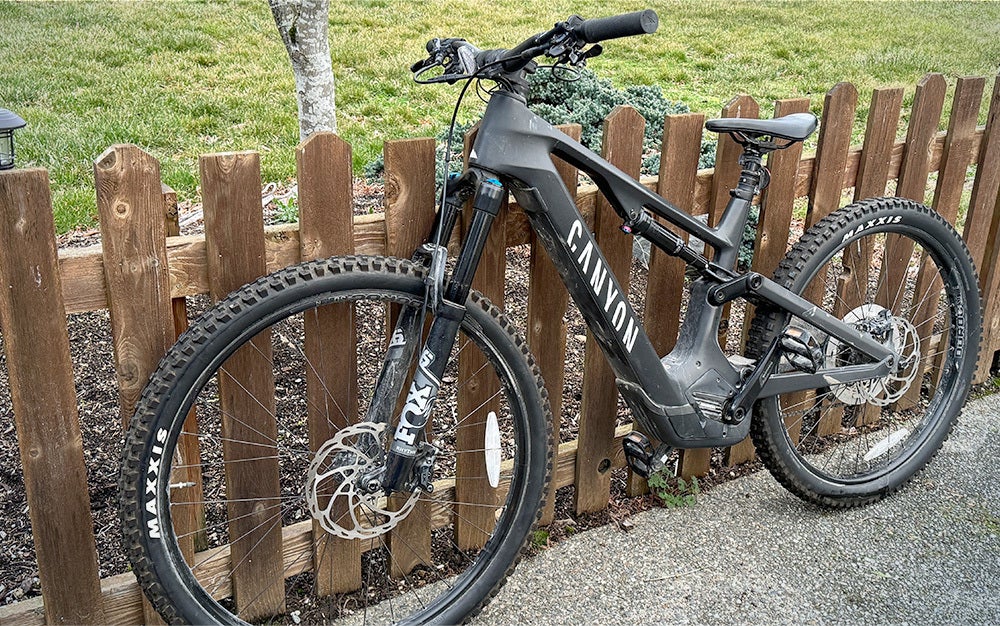
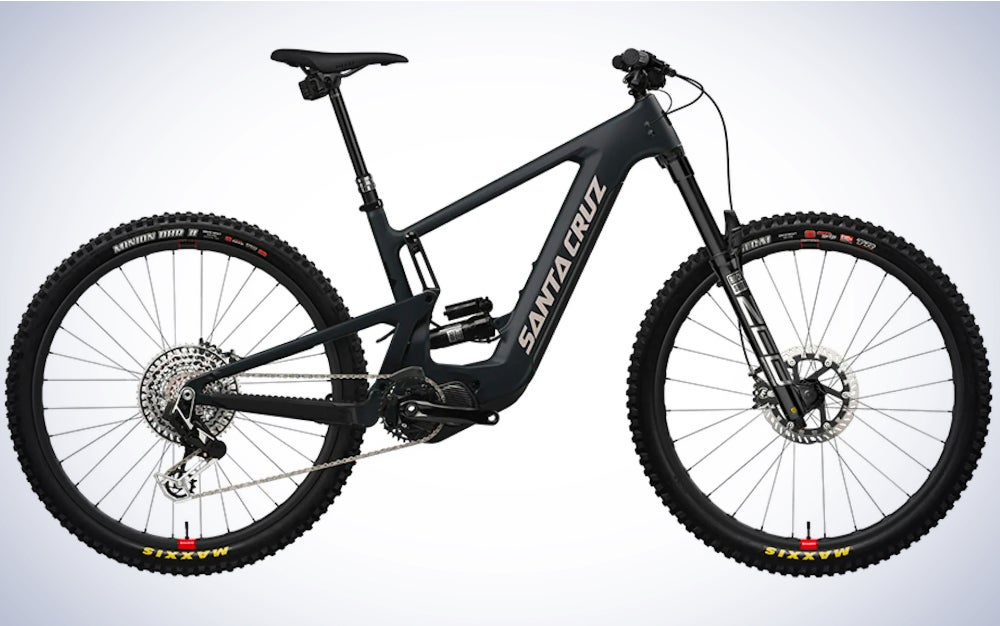
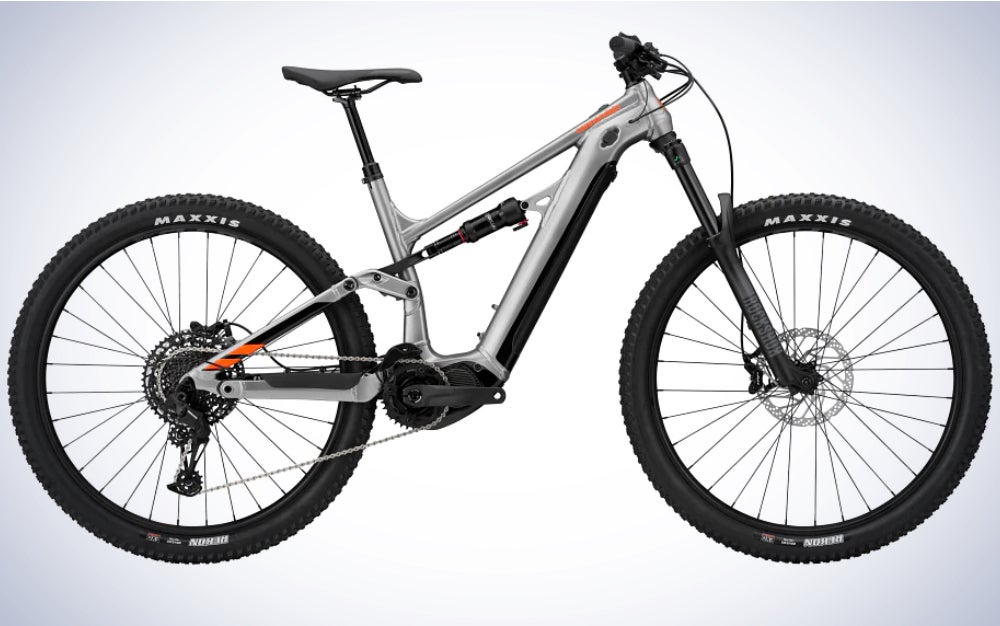
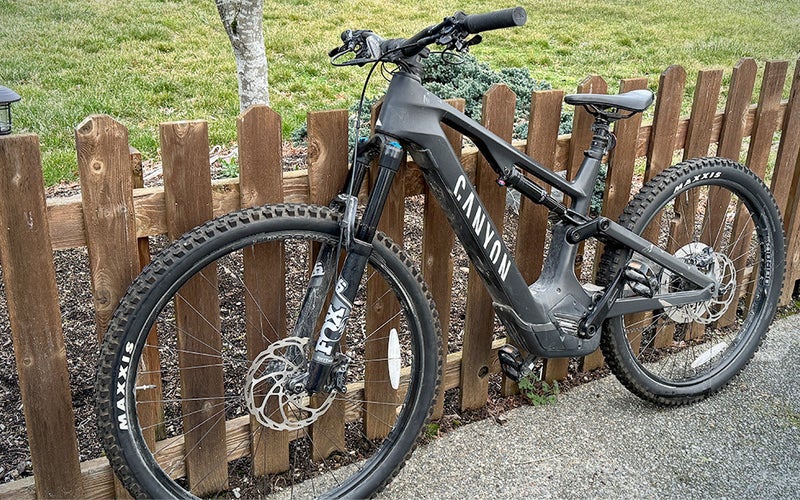
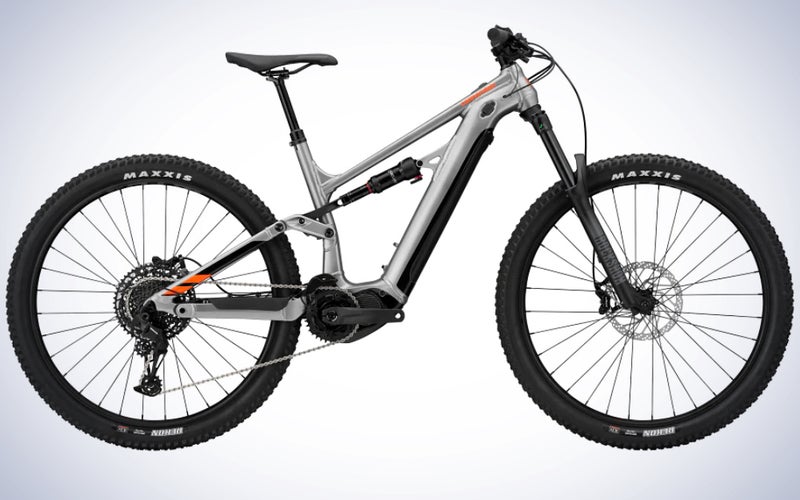
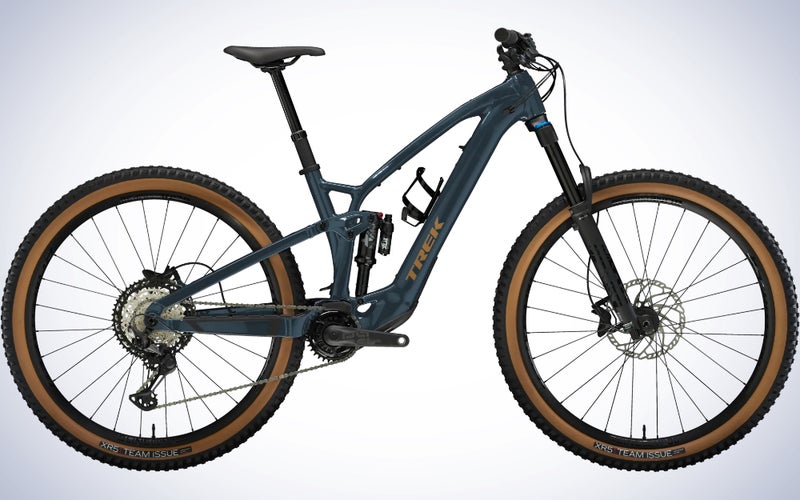
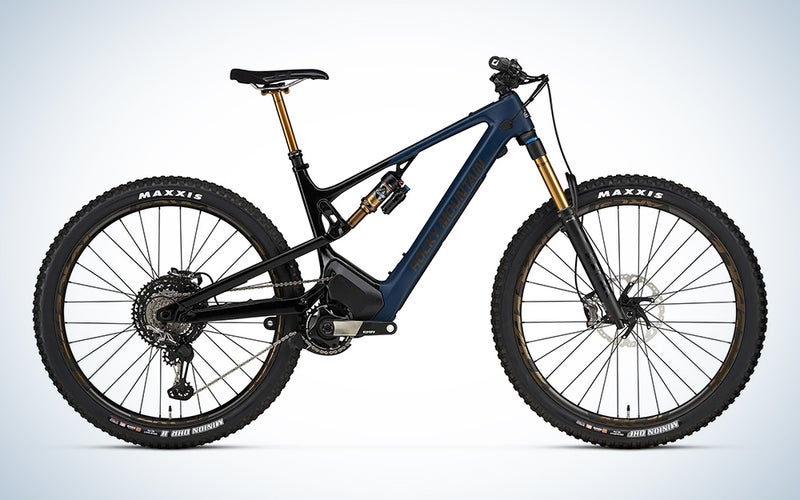
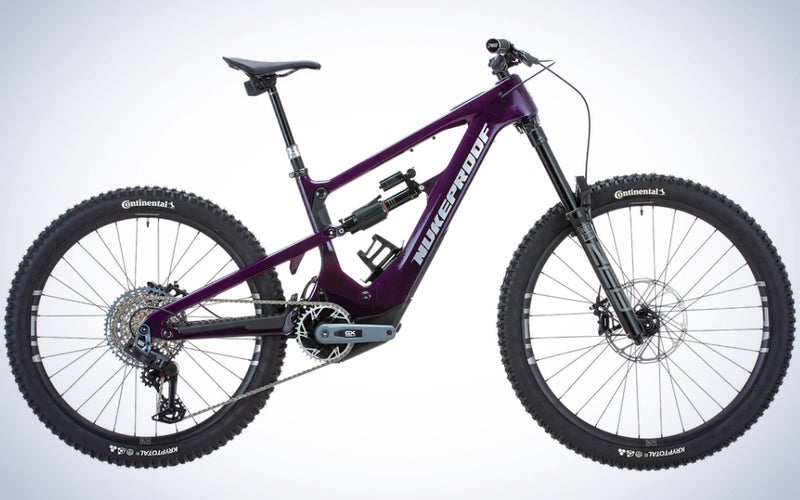
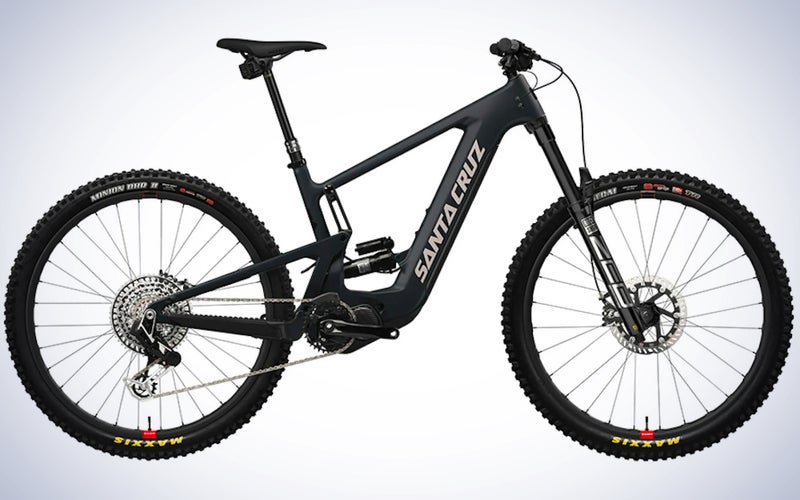
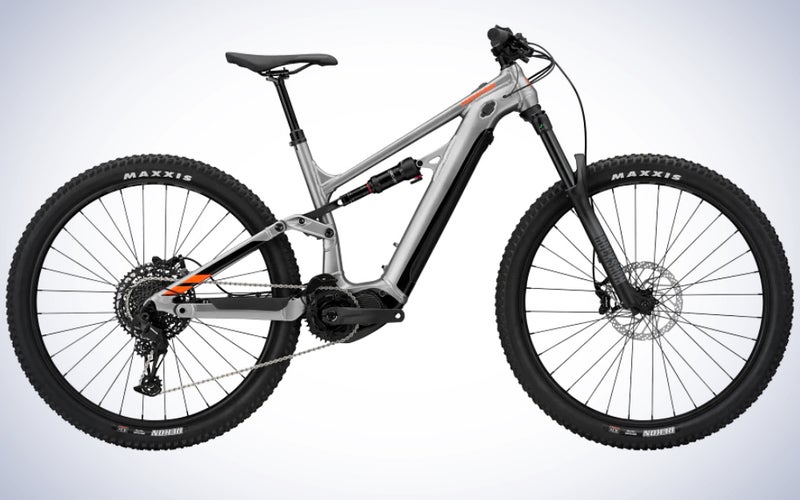



0 Comments